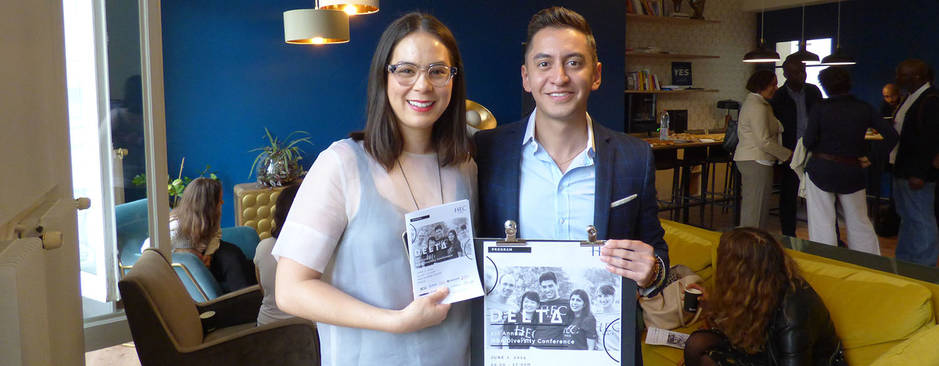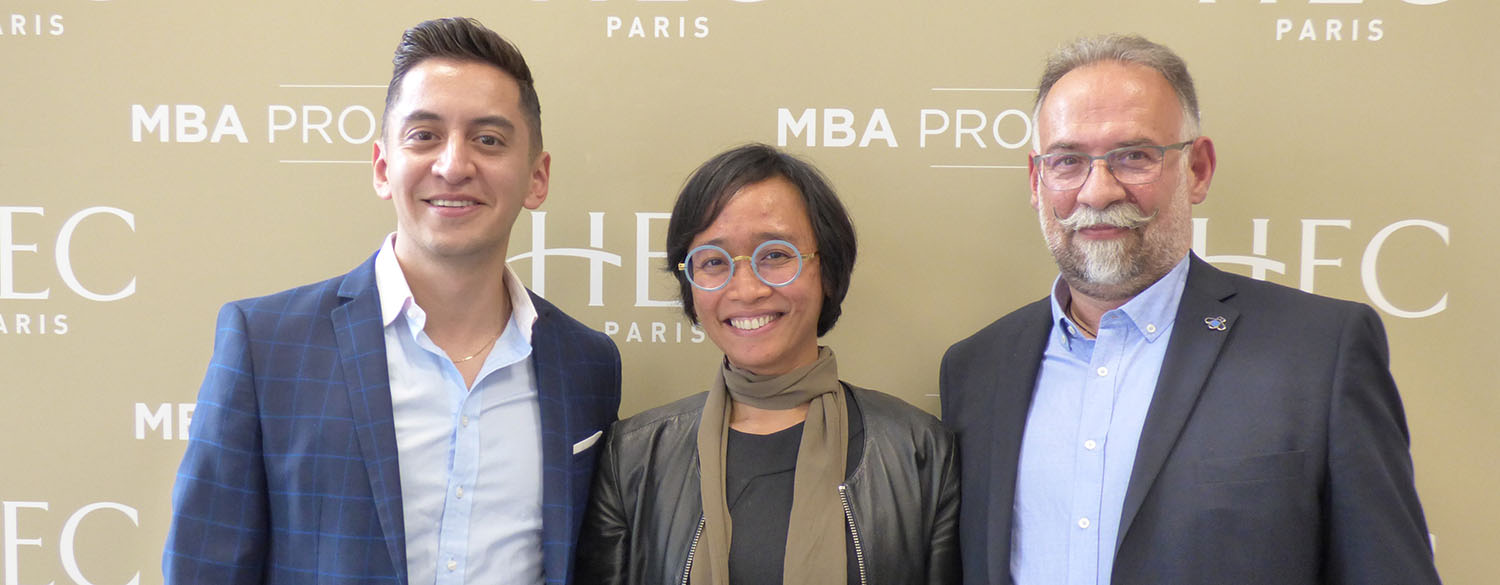Diversity and Inclusion: HEC Students Committed to Make a Difference
June 7, 2019 marked the occasion for the first annual MBA Diversity conference organized by Women in Leadership Society president Amanda Moritz, MBA student Luis Raúl Martínez, and the LGBT+ student society from HEC Paris. DELTA aims to shake up management and HR strategies in order to make diversity and inclusion one of the main priorities for firms.

For a full day, Diversity and Inclusion (D&I) issues in the workplace were tackled over six keynote speeches and panel discussions gathering eight top firms (Google, Danone, L’Oréal, Seita, BCG, Accenture, EY, and IBM). The creation of this unique event came from the combined efforts of the HEC Women in Leadership Club, the HEC LGBT+ Club, and DiversiTALKs. MBA Candidates Luis Raùl Martínez and Amanda Moritz co-organized this first conference. Amanda, President of the Women in Leadership Club and VP of HEC LGBT+ Club, wants to make D&I a topic that is widely discussed within the HEC campus. Luis Raul Martinez, VP of the LGBT+ and Allies club, was eager to launch DELTA as a passion project that complemented the HEC Inclusive and Social Business Certificate he pursued this Spring. The objective of their common project DELTA: transforming management education in order to make diversity in the workplace the norm and boost firms’ performance.
Making Diversity a First Priority
How are diversity and business performance linked? BCG Principal Consultant Thomas Delano made it clear: recent research proves that diversity is positively correlated with team efficiency and financial performance. Companies should care about diversity, not only because it is the right thing to do, but also because inclusive firms possess a substantial comparative advantage. Talented individuals with an inclusive mind-set are more likely to be hired by a firm which shares similar principles. Not being seen as an inclusive business could lead to an “LGBT+ talents paradox”. In non-inclusive firms, individuals generally hide their sexuality to avoid biased judgments from their colleagues. This can negatively impact both the individual, and the firm’s productivity.
The recent rise in the trend for LGBT+ inclusion from big corporations does not shield them from critical comments. Just as some firms have been accused in the past of using Breast Cancer awareness to make a profit, others are now criticized for participating in Pride celebrations purely for marketing purposes (the “pink washing” phemonmenon).
 Luis with two panelists, Putri Realita (Danone) and Jean-Louis Carvès (IBM). Photo by Courtnay Wheeler
Luis with two panelists, Putri Realita (Danone) and Jean-Louis Carvès (IBM). Photo by Courtnay Wheeler
Changing Mind-sets through Education
One of Luis’s and Amanda’s objectives is to erase bias towards sexual identity and orientation in all industries. This begins with education. HEC Paris already possesses an open-minded approach to management, but there is always more that can be done. “We already have a module on diversity management, but it should be part of the electives too”. The organizers of DELTA want to push the HEC Paris MBA program to be even more inclusive, and to train leaders who will shape the future of management and human resources.
Teaching inclusive management as a core module in business schools seems obvious for Jean-Louis Carvès, Diversity Engagement Partner at IBM France. According to him, “embracing opportunities through differences should be the main driver of big companies nowadays”. However, this change of mentality cannot occur without the transformation of education first. In that sense, Amanda’s, Luis’s and Jean-Louis’s viewpoints lead to the same conclusion: HEC and other major business schools have a duty to equip students with managerial skills adapted to our times.
How to Implement Change Directly within Firms
This first MBA Diversity conference also highlighted some tools for firms to change discriminative behavior in the workplace. ‘Forum-Theatre’ workshops can be a good way to point at and confront workers with borderline offensive behavior . The exercise, presented by Le Théatre de L’Opprimé, consisted of small sketches originally played by actors where spectators should interrupt the scene whenever they feel something is not right. Spectators then become actors to solve the situation within this small fictive scene. This workshop can be an efficient tool to limit discriminative behavior in the workplace and teach employees and employers how to act when they face similar situations.
Another idea that has been advocated is to educate the workforce on trans-identity and LGBT+ issues. HEC LGBT+ Club President Cody Overstreet organized the ‘Trans 101’ presentation, aiming at teaching the audience about “Trans” and all related terms. What does it mean to be an LGBT+ ally? How should we behave towards this community? A lot of discrimination is rooted in ignorance. Encouraging discussion with LGBT+ employees is another responsibility that companies can undertake.
The ideas and solutions exchanged during the DELTA event surpassed simply transforming the role of diversity in education, as students, staff and guests reflected on extending these ideas into the workplace and beyond.